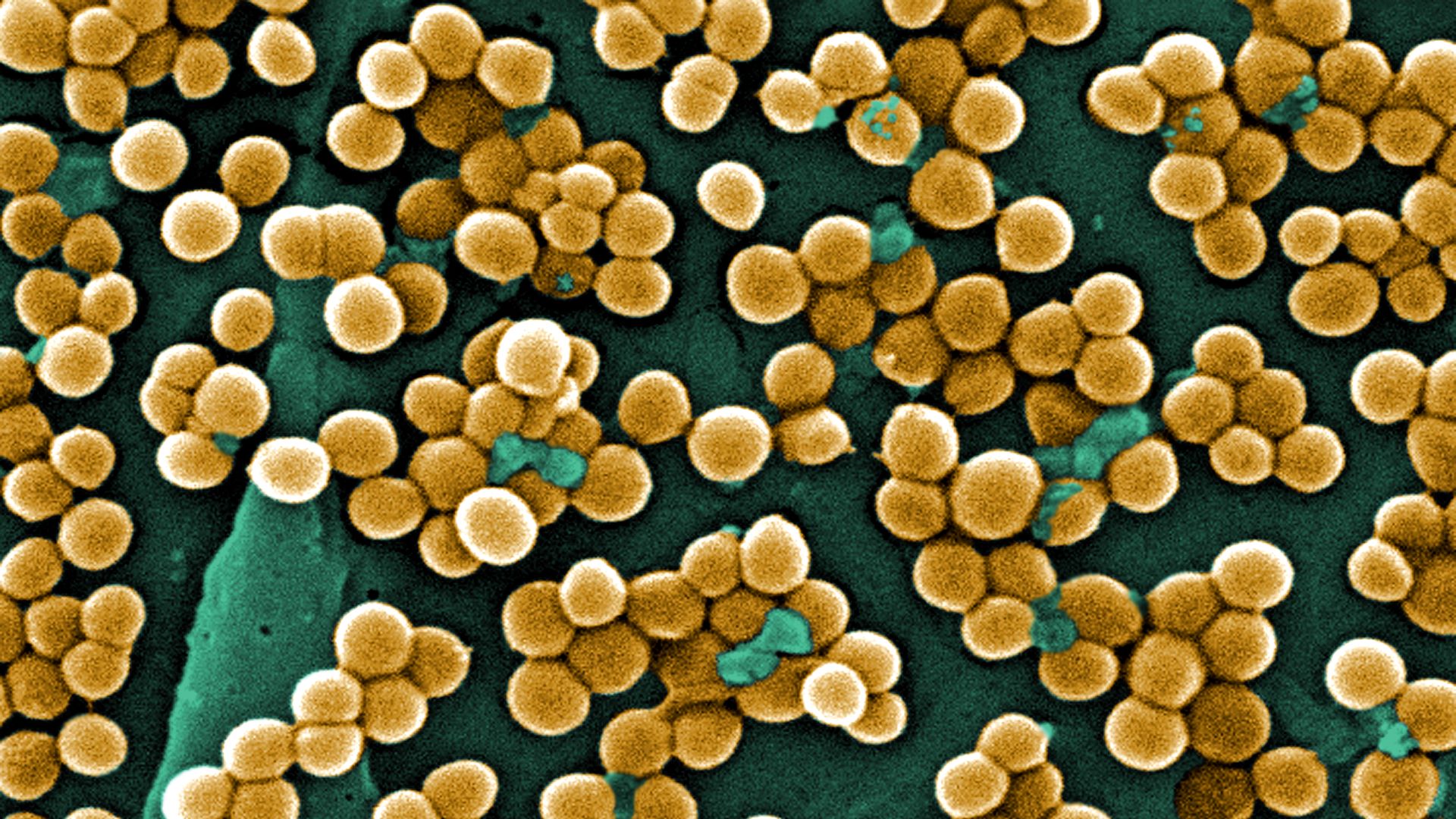The Lamen
What causes an itch? New research suggests it’s a bacteria

New research suggests that it is a common skin bacteria that causes an itch in skin conditions like eczema.
Photo: Digitally-colorized scanning electron microscopic (SEM) image depicting clumps of methicillin-resistant Staphylococcus aureus (MRSA) bacteria. | via CDC/PHIL
Based on research in mice and in human cells, scientists have shown that the itch that accompanies conditions like eczema is caused by a common bacteria — Staphylococcus aureus.
Explainer: The itch-scratch reflex is a fascinating crossway between pain and pleasure, yet it is often a neglected mechanism that often serves no more than a vague symptom. The new study published in Cell reports how we have misunderstood the mechanism of such persistent itch.
- The study shows that S. aureus releases a chemical that acts directly on the nerve cells — transmitting the signal of an itch from the skin to the brain.
- In conditions like eczema (also known as atopic dermatitis), the skin microbiome is thrown off balance, which can allow bacteria like S. aureus to flourish.
- “Up until now, the itch that occurs with eczema and atopic dermatitis was believed to arise from the accompanying inflammation of the skin,” an accompanying statement said. “But the new findings show that S. aureus single-handedly causes itch” by releasing certain chemicals.
Why it matters: The research experiments also found that treating animals with an anti-clotting medicine blocked the protein PAR1, interrupting the itch-scratch mechanism.
- This relieved the symptoms and minimized skin damage since repeated scratching can amplify the inflammation that accompanies these conditions.
- “The findings can inform the design of oral medicines and topical creams to treat persistent itch that occurs with various conditions linked to an imbalance in the skin microbiome,” they wrote.
What’s in it for the bacterium: The researchers speculate that scratching could enable the bacteria to spread to distant body sites and other people — similar to how the TB bacterium uses the cough to its advantage.
About one in three people carry S. aureus in their noses but without any illness. However, it is the most common pathogen involved in skin infections worldwide — associated with conditions that cause itchiness like eczema, prurigo nodularis, and psoriasis.
The researchers note that this explanation is just speculation at this point, but they could follow up with a broader outlook: Why do we itch and scratch? Does it help us, or does it help the microbe?”
Why it matters: Even if it is often believed to remove something bothersome from the skin, the itch has been described as one of the most diabolical sensations.
- About 31.6 million people, or 10.1 percent of the U.S. population, experience some form of eczema — most commonly during early childhood, according to the National Eczema Association. One of its most common symptoms is persistent itching.
- People with chronic itching have reported profound emotional distress, depression, panic, and feelings of isolation — damage that goes beyond the skin.
The research may offer scientists a direction to pursue developing treatments for eczema, but they currently aren’t sure how the findings will translate to humans.